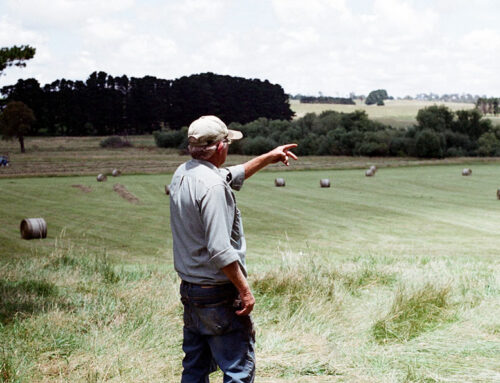The claim: A federal infrastructure bill includes an ‘animal agriculture tax’ of $2,600 per head of cattle
As Congress deliberates trillions of dollars worth of spending on infrastructure and social welfare programs before a looming government shutdown, some online claim the legislation includes a new tax on farmers.
A Sept. 27 Facebook post says the “$3.5 Trillion Infrastructure package includes an animal agriculture tax on dairy cows in the amount of $6,500.00 and $2,600.00 per head of other cattle.”
“It also includes an agriculture tax in the amount of $500.00 on swine (pigs- hogs) raised in the United States,” the post says. “AND that would be for each and every year.”
The post accumulated more than 1,000 shares in a day. Similar claims have racked up thousands of interactions on Facebook and Instagram, according to CrowdTangle, a social media insights tool.
Many of the posts cite a Sept. 22 column from Rep. Markwayne Mullin, R-Okla., titled “Blank Check for Socialism.” In it, Mullin says the $3.5 trillion Build Back Better Act – which is separate from the $1.2 trillion bipartisan infrastructure bill – would “impose a ‘fee’ on all methane emissions, including in our agriculture industry.”
“The tax is estimated to cost $6,500 per dairy cow, $2,600 per head of cattle, and $500 per swine each year,” the column reads. “That is more than what the animals are worth, it’ll run ranchers out of business.”
The Build Back Better Act, a budget reconciliation bill, does include a proposed methane fee. But it’s aimed at cutting greenhouse gas emissions from oil and natural gas producers, not farmers. Federal tax and farm law experts, as well as lobbying groups, say the provision is not a tax on cattle.
“No, the Build Back Better Act doesn’t include an ‘animal agriculture tax’ of any amount, let alone $2,600 per head of cattle,” Joshua Sewell, a senior policy analyst at Taxpayers for Common Sense, a federal budget watchdog organization, said in an email.
USA TODAY reached out to the Facebook user who shared the claim for comment.
Proposed methane fee focuses on oil, natural gas industries
If passed, the Build Back Better Act would impose a fee on methane emissions from oil and natural gas producers. Cattle farmers would not have to pay.
“Ultimately, the rumors relative to a potential cow tax are just that – rumors,” said Danielle Beck, senior executive director of government affairs at the National Cattlemen’s Beef Association, a trade and lobbying group for beef producers. “And we view it as an unhelpful distraction from the issues at hand.”
The House Energy and Commerce Committee approved the methane fee provision of the Build Back Better Act in mid-September. If Congress passes the reconciliation package, oil and natural gas producers would have to pay $1,500 for each metric ton of methane they emit above specific intensity thresholds.
Republican detractors said the fee would raise costs associated with heating homes and other activities, while Democrats argued it would reduce greenhouse gas emissions contributing to global warming. Rep. Kathy Castor, D-Fla., said the provision would “incentivize companies to find and fix leaks and stop intentional emissions like venting and flaring.”
The agriculture industry is the largest source of methane emissions in the U.S., according to the Environmental Protection Agency. But Mary Werden, communications director for Rep. Frank Pallone, the Democratic chair of the Energy and Commerce Committee, told USA TODAY in an email the claim in the Facebook post is “patently false.”
“There is absolutely no provision in the Build Back Better Act that would do what you described,” she said. “This myth appears to stem from Republican opposition to the methane fee, but – by their own admission – the methane fee only applies to certain oil and gas facilities.”
Republicans on the committee tried to amend the proposal to specifically exempt cattle operations. But Democrats defeated the amendment, saying the proposal didn’t apply to agriculture to begin with.
Claim stems from hypothetical calculation
The source of the claim in the Facebook post is a statement from an insurance company and lobbying group that represents the agriculture industry.
Meredith Blanford, Mullin’s communications director, said in an email the claim in the congressman’s column was based on an analysis conducted by the American Farm Bureau Federation. She cited a statement from the group that calculated the rough $2,600 and $6,500 figures based on the fee proposed in the reconciliation bill, as well as the amount of methane produced by the livestock sector.
“This is what could happen if the methane fee were applied to agriculture,” Blanford said. “Right now the text of the bill only specifies the oil and gas industry, but it also references EPA’s (greenhouse gas) inventory and leaves too much room for the EPA to expand its regulatory reach.”
In other words, Blanford acknowledged the calculation is theoretical – a critical nuance left out of Mullin’s column.
Mullin wrongly said the legislation would impose a fee that included the agriculture industry and “is estimated to cost $6,500 per dairy cow, $2,600 per head of cattle, and $500 per swine each year.”
Mike Tomko, director of communications at the Farm Bureau, told USA TODAY in an email the reconciliation bill “does not impose a methane tax on agriculture.”
Beck said the caveat in the Farm Bureau’s analysis “has been ignored, and several individuals have taken this theoretical analysis and run with it.”
She said some proposed changes to the tax code in the Build Back Better Act could adversely affect farmers, but those aren’t fee structures.
And other parts of the reconciliation package are “on track to shovel cash to the agriculture sector,” according to Sewell.
“The reconciliation portion from the Agriculture Committee … spends more than $90 billion on agriculture and forestry,” he said. “The Build Back Better agenda isn’t picking the pockets of farmers, it’s opening up the federal Treasury wallet to them.”
Our rating: False
Based on our research, we rate FALSE the claim that a federal infrastructure bill includes an “animal agriculture tax” of $2,600 per head of cattle. If passed, the Build Back Better Act would charge oil and natural gas producers a $1,500 fee for each metric ton of methane they emit above specific intensity thresholds. Cattle farmers are not included in the provision. The claim is based on a theoretical calculation from the Farm Bureau if the methane fee were applied to livestock, but no one is proposing to do that.
Our fact-check sources:
- Scott Faber, Sept. 29, Phone interview with USA TODAY
- Congressman Markwayne Mullin, Sept. 22, Blank Check for Socialism
- USA TODAY, Sept. 29, Here’s what’s in the infrastructure bill as it nears a vote in the House
- USA TODAY, Sept. 29, Live updates: Congress may take action today to avoid government shutdown
- Joshua Sewell, Sept. 29, Email exchange with USA TODAY
- The Oklahoman, Sept. 16, Methane fee opposed by energy industry wins committee approval
- Tulsa World, Sept. 29, Fact checking revived concerns on methane fees: Is cattle industry being taxed?
- Tax Foundation, Sept. 16, Build Back Better Act: Details & Analysis of the $3.5 Trillion Budget Reconciliation Bill
- Mary Werden, Sept. 29, Email exchange with USA TODAY
- CrowdTangle, accessed Sept. 29
- Environmental Protection Agency, accessed Sept. 29, Sources of Greenhouse Gas Emissions
- Meredith Blanford, Sept. 29, Email exchange with USA TODAY
- Danielle Beck, Sept. 29, Phone interview with USA TODAY
- Mike Tomko, Sept. 29, Email exchange with USA TODAY
- House of Representatives, Sept. 23, Draft version of the Build Back Better Act
- Associated Press, Sept. 27, EXPLAINER: What’s behind all the drama in Congress?
Thank you for supporting our journalism. You can subscribe to our print edition, ad-free app or electronic newspaper replica here.
Our fact-check work is supported in part by a grant from Facebook.











Get Social